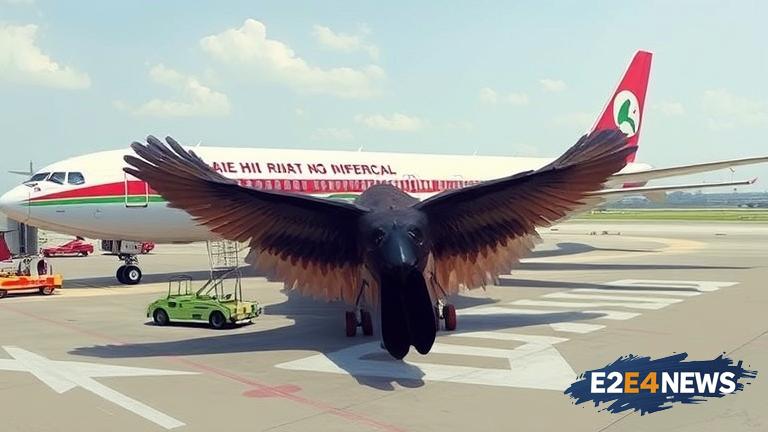In a major operation, Nigerian authorities have seized a large shipment of birds at the Murtala Muhammed International Airport in Lagos. The birds, totaling over 1,600, were bound for Kuwait when they were intercepted by customs officials. This significant seizure is part of Nigeria’s efforts to combat wildlife trafficking, which has been a persistent issue in the country. The birds, which included various species, were found in poor conditions, highlighting the inhumane treatment of animals in the illicit wildlife trade. The seizure is a notable success for Nigerian law enforcement, demonstrating their commitment to protecting endangered species and preventing their exploitation. Wildlife trafficking is a global concern, with many countries struggling to curb the illegal trade in animals and their parts. Nigeria, in particular, has been identified as a key transit point for wildlife trafficking, with many species being smuggled out of the country to destinations in Asia and the Middle East. The attempted export of the birds to Kuwait is a clear example of this trend, with the Gulf state being a known destination for illicit wildlife products. The Nigerian government has been working to strengthen its laws and enforcement mechanisms to combat wildlife trafficking, including the establishment of a dedicated task force to tackle the issue. The task force, which includes representatives from various government agencies, is responsible for coordinating efforts to prevent wildlife trafficking and prosecuting those involved in the illicit trade. The seizure of the birds at Lagos airport is a testament to the effectiveness of these efforts, with customs officials and other law enforcement agencies working together to identify and intercept suspicious shipments. The birds, which are currently being cared for by wildlife experts, will be rehabilitated and potentially released back into the wild. The seizure has also highlighted the need for greater international cooperation to combat wildlife trafficking, with Nigeria and other countries working together to share intelligence and best practices. The use of airports and other transportation hubs as key locations for wildlife trafficking has also been highlighted, with authorities needing to be vigilant in monitoring shipments and identifying potential threats. The Nigerian government has praised the efforts of its law enforcement agencies, noting that the seizure is a significant step forward in the fight against wildlife trafficking. The country’s environment minister has also called for greater public awareness of the issue, highlighting the importance of protecting Nigeria’s rich biodiversity. The minister noted that wildlife trafficking is not only a threat to endangered species but also a significant economic and security concern, with the illicit trade undermining the country’s development and stability. The seizure has also sparked calls for greater action to be taken against those involved in wildlife trafficking, with many advocating for tougher penalties and more effective enforcement mechanisms. As Nigeria continues to work to combat wildlife trafficking, the international community is being urged to provide support and assistance, including through the sharing of intelligence and expertise. The fight against wildlife trafficking is a complex and ongoing challenge, requiring sustained efforts and cooperation from governments, law enforcement agencies, and other stakeholders. By working together, it is possible to prevent the exploitation of endangered species and protect the world’s rich biodiversity. The seizure of the birds at Lagos airport is a positive step in this direction, demonstrating the effectiveness of collaborative efforts to combat wildlife trafficking.
